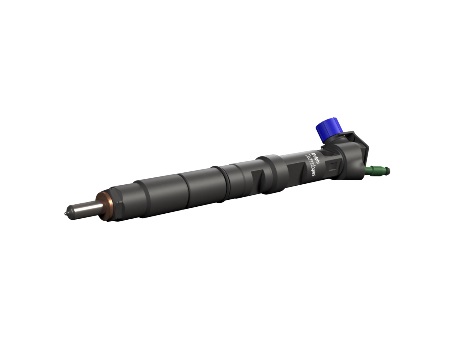Heavy duty & off-highway Diesel Fuel Injection

- Product Information
- Product Resources
- Enquire
- Related Products
Rich OE legacy
Our heritage dates back to the legendary CAV brand, and the introduction of in-line and the iconic DPA pump – the best-selling rotary pump worldwide. Both were revolutionary for their time, setting new standards for reliability and power, and we’ve continued to push the boundaries ever since.
Three choices for fleets
By providing three choices – new, reman and repair – we can provide fleet managers with convenient service and maintenance at a very competitive cost.
Latest generation OE technology
Our latest generation F3 system takes engines beyond the 2021 global emissions and fuel economy regulations and through the next decade. Based on our proven Euro VI Common Rail technology and capable of 3,000 bar injection pressure, it delivers a substantial improvement in emissions, fuel economy and refinement for the lifetime of the engine.
OE-approved repair
In addition to new and remanufactured units, we also offer authorised repair through our global network of Delphi Diesel Centres. Replacing all wearable and performance critical parts, with like-for-like OE, and using OE-approved test plans and equipment, it offers a quality but economical solution.
Find your local diesel specialist here.
Reman
For an equally fast, yet more cost-effective turnaround we offer a range of remanufactured parts. Available off-the-shelf, typically within one to two years of vehicle launch, they are built using OE parts, equipment and processes, and are calibrated to exacting OE specifications.


OE expertise in the aftermarket
Of course, we’re committed to supporting these technologies in the aftermarket. We offer a range of new OE components, identical to those originally fitted, including our pioneering Electronic Unit Injector, Electronic Unit Pump, Smart injector and Multec® Common Rail.
Commercial vehicle diagnostics and test
Our dedicated diagnostic solution for trucks, buses and trailers, supports the key commercial vehicle manufacturers and systems, including the ability to carry out dosing tests, Adblue freeze monitoring calibration, system drain down and regeneration of the SCR system. We also offer a range of OE-approved test equipment for quick and accurate test and repair of the latest heavy duty applications.
Training from the OE experts
Designed to help you prepare for the very latest heavy duty diesel fuel injection technologies, our extensive training programme covers the repair of key systems, including Electronic Unit Injector and Pump and Smart injectors. Learn more about our training.
.jpg?sfvrsn=950636e0_7)
The Delphi Difference
-
100 years of OE experience, supplier to the world’s top automakers
-
OE heritage and knowledge built into every aftermarket part
-
Comprehensive portfolio for a wide range of vehicles and model years
-
Streamlined SKUs for easy inventory management
-
Support through tools, tips and training

Related product resources and downloads

Resource Highlights
In this article, we put the record straight with a few home truths about diesel…proving why it’s both an important part of many automaker’s line-up, and a popular choice for vehicle owners. And will be for many, many years yet.
Four years on, and the aftermath of the diesel emissions scandal continues to hamper consumer confidence in diesel. Once accepted as, and still very much today, a super clean, efficient fuel source, its reputation has been tarnished in recent years, thanks largely to often inaccurate and misinformed headlines in the media. Here, Delphi, a global pioneer in propulsion technologies, solutions and services, puts the record straight with a few home truths about diesel…proving why it’s both an important part of many automaker’s line-up, and a popular choice for vehicle owners. And will be for many, many years yet.
1. Diesel vehicles have the lowest Carbon Dioxide (CO2) emissions of current fuel sources:
- Diesel fuel has higher energy content per liter than other transport fuels.
- Diesel engines are also more thermodynamically efficient, meaning they convert more of this energy content into useful work.
- Because of this, diesel cars consume about 25% less fuel by volume than equivalent gasoline cars.
- Diesel cars also generate about 15% less CO2 per kilometer than equivalent gasoline cars.
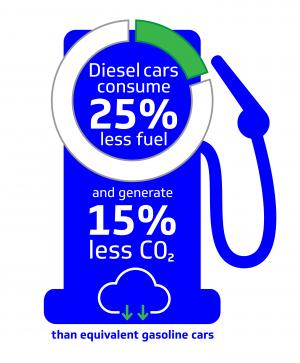
2. Diesel is a key contributor to meeting CO2 reduction goals:
- Road transport contributes to about 20%1 of total man-made greenhouse gas emissions, mainly CO2.
- Diesel remains key to many automakers strategies in reducing CO2 emissions and meeting increasingly stringent regulation.
- When used with the emission control systems fitted to many modern vehicles, it will help to reduce CO2 emissions beyond the new targets agreed by the European Union (EU) in December 2018.
- Average CO2 emissions generated by new cars increased by 2.4 g CO2/km to 120.5 g CO2/km in 20182 – the highest average of the last four years. Along with the rising popularity of SUVs, declining new diesel car sales have been a key contributing factor.
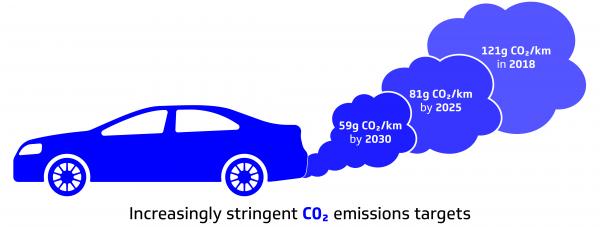
3. Diesel is a cost-effective and popular solution for many users:
- Diesel’s high fuel economy ensures lower fuel costs and longer range between refuelling stops.
- Diesel engines provide high torque, enabling load-carrying, towing, and safe overtaking.
- Diesel remains the predominant fuel source for heavy and light commercial vehicles.

4. Clean diesel technology successfully controls emissions including under real-world conditions:
- As per European emission standards, emissions of Particulate Matter (PM), including soot, reduced by 97% from 140 mg/km in Euro 1 to 4.5 mg/km in Euro 6.
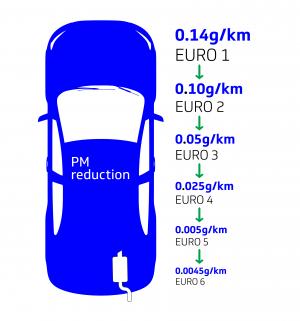
- Similarly, Nitrogen Oxide (NOx) emission levels reduced by 84% from 500 mg/km in Euro 3 (when NOx was first measured) to 80 mg/km in Euro 6.
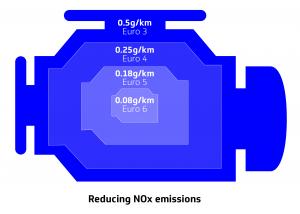
- The introduction of Real Driving Emission (RDE) tests, to more accurately reflect the actual emissions performance of vehicles on the road, has played an important role in the uptake of very efficient NOx reduction aftertreatment technologies.
- According to ADAC, Euro 6d-TEMP diesel vehicles emit an average of 76% less NOx than Euro 6b diesel (pre-RDE) and 85% less than Euro 5 diesel3.
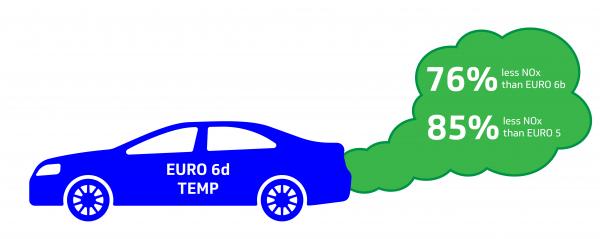
The facts speak for themselves
So, for all the talk, it’s clear that diesel is still a super-clean, super-efficient fuel. Because of this, it will remain an important option in the majority of automaker’s portfolios. A popular choice for many vehicle owners. And crucially for the aftermarket, an increasingly common sight in workshop bays across the globe, with more and more diesel drivers seeking high-quality, high-value repairs for many more years to come. Now that’s a fact that’s worth talking about.
Check back here shortly, for more on the growing diesel service opportunity.
- ACEA publication Nov 2014 + potential for further controls of emissions from mobile sources in Europe’, TSAP Report #4 V2.0 – Jens Borken-Kleefeld & Leonidas Ntziachristos, November 2012
- JATO Dynamics - covering 23 markets in Europe
- https://www.adac.de/rund-ums-fahrzeug/abgas-diesel-fahrverbote/abgasnorm/euro-6d-temp/
Get in touch

Find out where to buy Delphi parts

